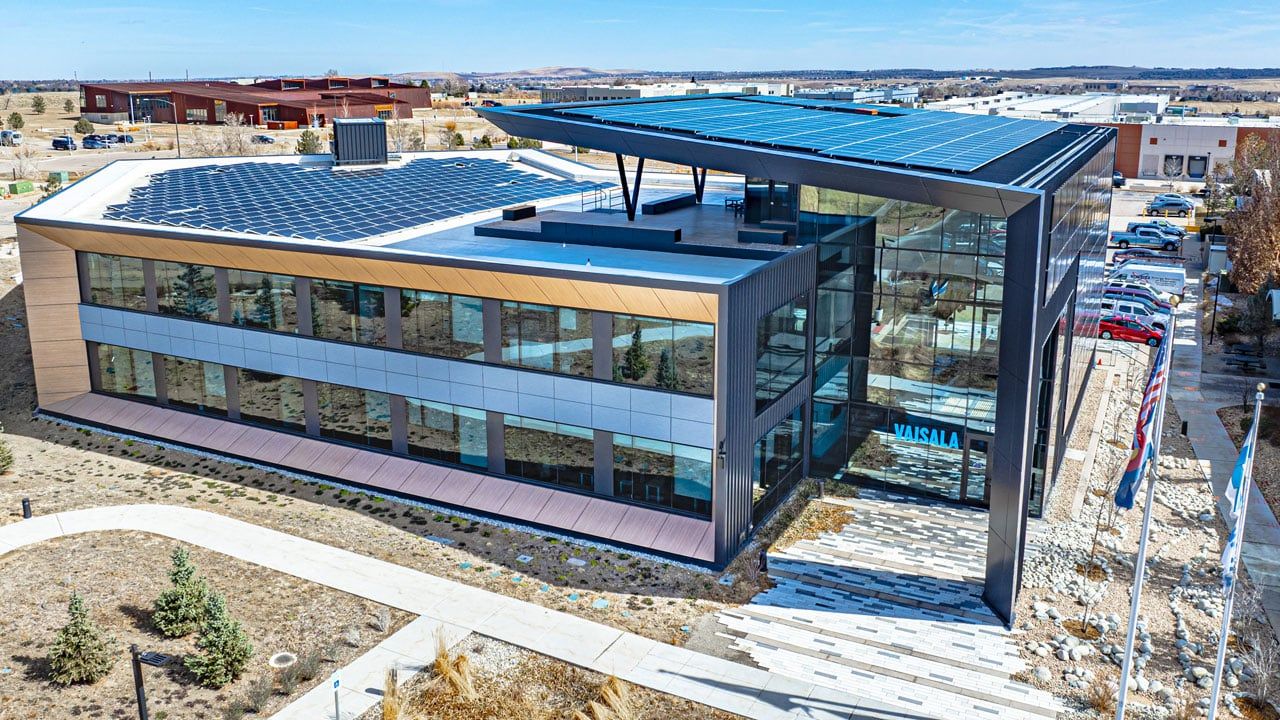State high court issues mixed ruling in Boulder County oil, gas leases

DENVER – The Colorado Supreme Court on Monday upheld an appeals court’s ruling that Boulder County’s oil and gas leases are valid, but overturned a legal ruling that was unfavorable to the owners of oil and gas leases across the state, including the county.
In 2019, the county sued Crestone Peak Resources, arguing that certain leases owned by the county had expired when oil and gas production on those leases stopped for four months. The leases provided that any gap in production longer than 60 or 90 days could lead to termination of the leases. However, the appeals court held that the existence of a well that could produce oil or gas, even if it was not doing so, meant that production had not actually stopped.
Both leases involved in the lawsuit, referred to as the Henderson lease and the Haley lease, included cessation of production provisions and shut-in royalty clauses.
SPONSORED CONTENT
Commercial Solar is a big investment, but not an overwhelming one
Solar offers a significant economic benefit for commercial property owners while also positively impacting the environment and offering a path to compliance for new municipal requirements like Energize Denver. A local, experienced solar installer will help you navigate the complexities of commercial solar to achieve financial success for your project.
The state high court rejected the three-judge court of appeals’ “sweeping” ruling, finding instead that each oil and gas lease must be interpreted based on its own terms with respect to what type of production is required and in what context. The justices interpreted inconsistent language in the leases and found that the leases the county challenged did not expire because of the production stoppage.
“Today’s ruling by the Colorado Supreme Court takes a poor piece of law off the books,” said Kate Burke, senior assistant county attorney. “Although we didn’t get the full outcome we were hoping for, the rejection of the appeals court’s legal conclusion is a win for the county and other mineral owners going forward.”
Supreme Court Justice Monica M. Marquez delivered the court’s ruling, adding that, “examining the specific leases at issue here, we conclude that the four-month shut-in did not trigger termination under their cessation-of-production clauses.”
In Monday’s opinion, Marquez wrote for the court that “we decline to adopt any universal definition for ‘production’ in oil and gas leases in Colorado, but rather determine the parties’ meaning within the context of the lease.”
She added that, “to hold that a lessee must conduct additional drilling on property where a productive well already exists to avoid termination of their lease would risk initiating a surge of new drilling operations any time there is a pause.”
“It’s clear our efforts to enforce our lease rights can yield positive shifts in the law,” said Commissioner Claire Levy in a prepared statement. “This ruling gives us more clarity when we are evaluating the status of the county’s leases. The county’s legal team will continue to push for clear and coherent law around oil and gas.”
A moratorium on drilling was put in place in 2012 in Boulder County. It expired in 2017 and was reinstated in 2019 after the passage of SB-181, a law that allowed local governments more control over regulating drilling operations.
The same year, the Colorado Oil and Gas Conservation Commission decided to hold off on the final rulemaking process for SB-181 until Boulder County’s lawsuit against Crestone had been settled.
“Boulder County took the fight all the way and we are grateful to our team for taking on these difficult legal arguments,” said Commissioner Ashley Stolzmann. “It is rare for mineral and land owners to score any wins in this area and we got a partial victory, which is something to be proud of.”
In 2021, Denver-based Bonanza Creek Energy Inc. and Extraction Oil & Gas Inc. merged and acquired Crestone Peak Resources. The combined company was rebranded Civitas Resources Inc., which began trading on the New York Stock Exchange on Nov. 2, 2021, under the ticker “CIVI.”
The merger made Civitas the largest pure-play energy producer in Colorado’s Denver-Julesburg Basin, and it marketed itself as “the state’s first carbon-neutral oil and gas company.”
The case is Board of County Commissioners v. Crestone Peak Resources Operating LLC.
DENVER – The Colorado Supreme Court on Monday upheld an appeals court’s ruling that Boulder County’s oil and gas leases are valid, but overturned a legal ruling that was unfavorable to the owners of oil and gas leases across the state, including the county.
In 2019, the county sued Crestone Peak Resources, arguing that certain leases owned by the county had expired when oil and gas production on those leases stopped for four months. The leases provided that any gap in production longer than 60 or 90 days could lead to termination of the leases. However, the appeals court held that…
THIS ARTICLE IS FOR SUBSCRIBERS ONLY
Continue reading for less than $3 per week!
Get a month of award-winning local business news, trends and insights
Access award-winning content today!


